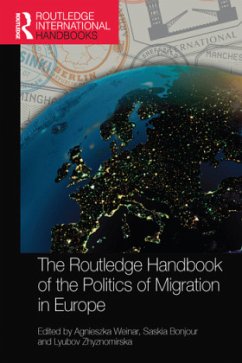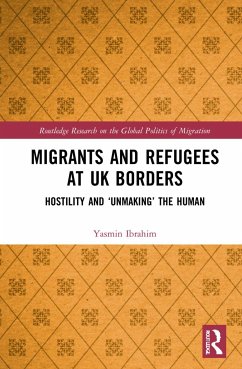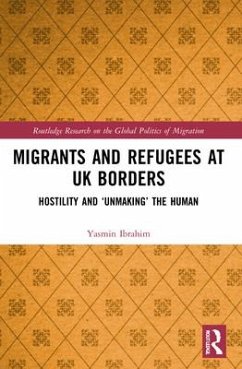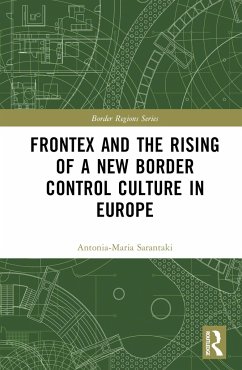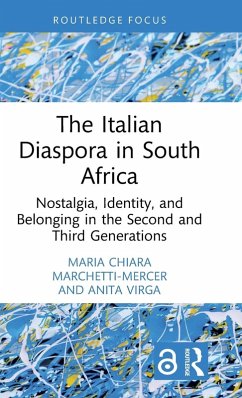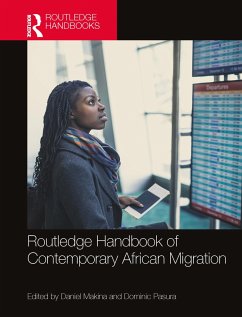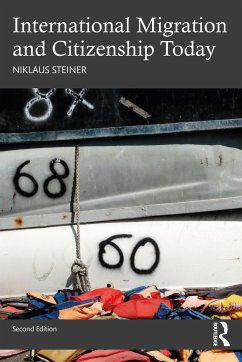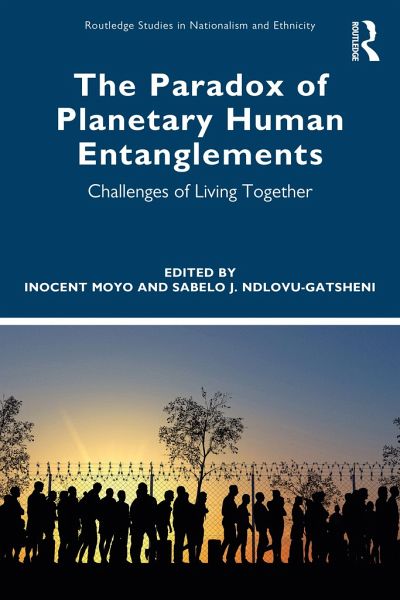
The Paradox of Planetary Human Entanglements
Challenges of Living Together
Herausgegeben: Moyo, Inocent; Ndlovu-Gatsheni, Sabelo J.
Versandkostenfrei!
Versandfertig in 6-10 Tagen
41,99 €
inkl. MwSt.

PAYBACK Punkte
21 °P sammeln!
The Paradox of Planetary Human Entanglements provides a nuanced understanding of the complexity of planetary human entanglements in this age of increased borderisation and territorialisation, racism and xenophobia, and inclusion and exclusion.One of the greatest paradoxes of the 21st century is that of increased planetary human entanglements enabled by globalisation on the one hand and by the rising tide of exclusionary right-wing politics of racism, xenophobia, and the building of walled states on the other. The characteristic feature of this paradox is the unrestrained move towards the deten...
The Paradox of Planetary Human Entanglements provides a nuanced understanding of the complexity of planetary human entanglements in this age of increased borderisation and territorialisation, racism and xenophobia, and inclusion and exclusion.
One of the greatest paradoxes of the 21st century is that of increased planetary human entanglements enabled by globalisation on the one hand and by the rising tide of exclusionary right-wing politics of racism, xenophobia, and the building of walled states on the other. The characteristic feature of this paradox is the unrestrained move towards the detention and incarceration of those who attempt to migrate. This brings to the fore the issue of borders in terms of their materiality and symbolism and how this mediates belonging, citizenship, and the ethics (or lack thereof) and politics of living together. This book shows that at the core of border and migration restrictions is the desire to exclude certain categories of people, which aptly demonstrates that borders in their materiality are not for everyone but for those who are considered undesirable migrants. The authors examine questions of borders, nationalism, migration, immigration, and belonging, setting the basis of a campaign for planetary humanism grounded on human dignity, which transcends ethnicity and nationality.
This book will be a useful resource for students, scholars, and researchers of African Studies, Border Studies, Migration Studies, Development Studies, International Studies, Black Studies, International Relations, and Political Science.
One of the greatest paradoxes of the 21st century is that of increased planetary human entanglements enabled by globalisation on the one hand and by the rising tide of exclusionary right-wing politics of racism, xenophobia, and the building of walled states on the other. The characteristic feature of this paradox is the unrestrained move towards the detention and incarceration of those who attempt to migrate. This brings to the fore the issue of borders in terms of their materiality and symbolism and how this mediates belonging, citizenship, and the ethics (or lack thereof) and politics of living together. This book shows that at the core of border and migration restrictions is the desire to exclude certain categories of people, which aptly demonstrates that borders in their materiality are not for everyone but for those who are considered undesirable migrants. The authors examine questions of borders, nationalism, migration, immigration, and belonging, setting the basis of a campaign for planetary humanism grounded on human dignity, which transcends ethnicity and nationality.
This book will be a useful resource for students, scholars, and researchers of African Studies, Border Studies, Migration Studies, Development Studies, International Studies, Black Studies, International Relations, and Political Science.





